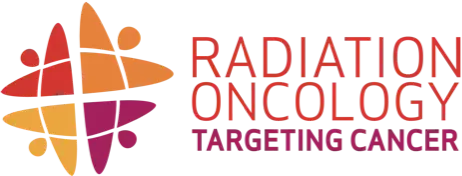Leukaemia Treatment in AU and NZ
Leukaemia is cancer of the body’s blood-forming tissues, including the bone marrow. It can occur in adults and children.
The most common types of leukaemia come from white blood cells known as myeloid or lymphoid. Leukaemia can be either acute or chronic.
Acute leukaemia appears suddenly, grows quickly within the bone marrow and then flows through the blood stream. If not treated urgently, the normal blood cells can be over taken by these abnormal cells.
Chronic leukaemia is when old white blood cells refuse to die and build up in the blood stream. The old cells slow the blood flow and block blood vessels in the bone marrow and organs, which affects how they work.
Radiation Therapy and Leukaemia
The best person to talk to about radiation therapy for leukaemia is a radiation oncologist. A radiation oncologist is a specialist doctor who is part of the team that takes care of people having radiation therapy.
You can ask your doctor for a referral to a radiation oncologist to learn if radiation therapy is an option for you.
The Treatment Team
Doctors make a treatment plan for each person based on the:
- type of cancer
- where the cancer is
- what other treatments have been tried
- the person’s health.
The type of treatment a person gets is worked out by a team of doctors and health professionals often called a Multidisciplinary Team.
A highly trained radiation oncology team takes care of people having radiation therapy. This includes radiation oncologists, radiation therapists, medical physicists and radiation oncology nurses.
Treatments for Leukaemia
Doctors treat most leukaemia with chemotherapy. Chemotherapy aims to put the leukaemia into remission and keep it there. Remission in leukaemia is when blood cell counts return to normal and there are no signs of the disease.
Types of Radiation Therapy Used for Leukaemia
Treatment teams only use radiation therapy to treat leukaemia in certain situations.
In some cases of acute lymphoblastic leukaemia in children, the treatment team might use radiation therapy to treat the fluid in and around the brain to prevent leukaemia cells from ‘hiding’ there.
Total body irradiation is part of the preparation for bone marrow transplant. This is the treatment team uses radiation therapy to clear out the old bone marrow before donor marrow is infused.
If chemotherapy stops working, treatment teams sometimes use radiation therapy to treat leukaemia in bone or soft tissue. This is called palliative radiation therapy.
General Information About Side Effects of Radiation Therapy for Leukaemia
Radiation therapy is more effective with fewer side effects than ever before.
Recent advances mean radiation oncologists can effectively target the cancer while getting less radiation on healthy body parts. This has reduced side effects a lot.
Side effects from radiation therapy vary between people, even for those having the same treatment.
While some people feel no side effects, most will feel some mild side effects during and/or just after treatment. These usually get better after a few weeks.
A small number of patients have more serious and/or long-term side effects.
The radiation oncologist will talk to you about side effects and answer any questions before treatment.
Leukaemia is very sensitive to radiation. This means radiation oncologists only need to use small amounts to control leukaemia and to manage things like pain and bleeding.
Due to the low dose, there are often no side effects, or very mild ones, such as tiredness.
For more information, go to the Potential Side Effects page.
Other Useful Resources for Leukaemia
Find additional information about cancer types, research groups, and support groups.
Radiation Oncologist
The best person to talk to is a radiation oncologist. You can ask your doctor for a referral to find out if radiation treatment is right for you.
GPs and Health Professionals
Information for any health professional involved in a patient's cancer care with a particular focus on primary care providers.
Talking to Your Doctor
Your GP or other doctors in the cancer team can organise a referral to a radiation oncologist.
Treatment Centres
Search and find your closest Radiation Oncology Treatment Centre.
